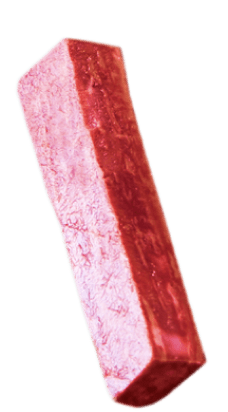atlas
atlas
Listen to your gut
Find out how your genes affect your nutrition and disease risk and get personal food recommendations
£139
atlas


Listen to your gut
Find out how your genes affect your nutrition and disease risk and get personal food recommendations
£139
Buy now
atlas

Listen to your gut
Find out how your genes affect your nutrition and disease risk and get personal food recommendations
£139
Buy now
atlas

Listen to your gut
Find out how your genes affect your nutrition and disease risk and get personal food recommendations
£139
Buy now
atlas


Unbalanced eating is assosiated with disease risks
Studies show that people with
the same disease have similar microbiota composition. Scientists can link key features of one's gut microbiome with certain diseases
the same disease have similar microbiota composition. Scientists can link key features of one's gut microbiome with certain diseases


Unbalanced eating is assosiated with disease risks
Studies show that people with the same disease have similar microbiota composition. Scientists can link key features of one's gut microbiome with certain diseases

Microbiome may affect some disease risks


Microbiome may affects some risks
Microbiome may affects some risks

The fewer similarities there are between profiles, the better a person is protected from these 5 diseases


Diabetes type 2
Chron's disease
Obesity
Coronary heart discease
Ulcerative colitis
Why dietary fibers
are so important?
are so important?
Beneficial bacteria use fibers to produce important short-chain fatty acids, such as butyrate, propionate and acetate that support gut and microbiome health











Why dietary fibers
are so important?
are so important?
Beneficial bacteria use fibers to produce important short-chain fatty acids, such as butyrate, propionate and acetate that support gut and microbiome health










Why dietary fibers
are they important?
are they important?
Beneficial bacteria use fibers to produce important short-chain fatty acids, such as butyrate, propionate and acetate that support gut and microbiome health







Why dietary
fibers are so
important?
fibers are so
important?
Beneficial bacteria use fibers
to produce important short-chain fatty acids, such as butyrate, propionate and acetate that support gut and microbiome health
to produce important short-chain fatty acids, such as butyrate, propionate and acetate that support gut and microbiome health
Why dietary
fibers are so
important?
fibers are so
important?
Beneficial bacteria use fibers to produce important short-chain fatty acids, such as butyrate, propionate and acetate that support gut and microbiome health
Vitamins & minerals
Vitamin B1
Vitamin B2
Riboflavin
Vitamin B3
Niacin
Vitamin B5
Pantothenic acid
Vitamin B6
Pyridoxine
Vitamin B7

Vitamin B1 (thiamine) is necessary for normal growth and physical development.
Thiamine
Biotin
Vitamin B9
Folic acid
Vitamin K
Vitamin B2 (riboflavin) participates in the formation of red blood cells and is also important for immune and reproductive health.
Vitamin B3 (niacin) is involved in the metabolism of fats, protein and amino acids.
Vitamin B5 (pantothenic acid) is responsible for regulating levels of fats, carbohydrates and amino acids in the body.
Vitamin B6 (pyridoxine) is involved in the synthesis of haemoglobin and neurotransmitters and supports nervous system functions.
Vitamin B7 (biotin) regulates blood glucose levels and maintains the skin, hair and nails.
Vitamin B9 (folic acid) is a vital component in the process of DNA synthesis, particularly for bone marrow, epithelium and gametes.
Vitamin K supports the absorption of calcium and the formation of proteins that enable blood clotting.







Vitamins are affected by microbiome, too
The microbiome produces vitamins B and K, which can nourish other bacteria or be absorbed through the gut lining




Vitamin B1 (thiamine) is necessary for normal growth and physical development.

Vitamin B2 (riboflavin) participates in the formation of red blood cells and is also important for immune and reproductive health.

Vitamin B3 (niacin) is involved in the metabolism of fats, protein and amino acids.

Vitamin B5 (pantothenic acid) is responsible for regulating levels of fats, carbohydrates and amino acids in the body.

Vitamin B6 (pyridoxine) is involved in the synthesis of haemoglobin and neurotransmitters and supports nervous system functions.

Vitamin B7 (biotin) regulates blood glucose levels and maintains the skin, hair and nails.

Vitamin B9 (folic acid) is a vital component in the process of DNA synthesis, particularly for bone marrow, epithelium and gametes.

Vitamin K supports the absorption of calcium and the formation of proteins that enable blood clotting.
Vitamins are affected by microbiome, too
The microbiome produces vitamins B and K, which can nourish other bacteria or be absorbed through the gut lining




Vitamin B1 (thiamine) is necessary for normal growth and physical development.

Vitamin B2 (riboflavin) participates in the formation of red blood cells and is also important for immune and reproductive health.

Vitamin B3 (niacin) is involved in the metabolism of fats, protein and amino acids.

Vitamin B5 (pantothenic acid) is responsible for regulating levels of fats, carbohydrates and amino acids in the body.

Vitamin B6 (pyridoxine) is involved in the synthesis of haemoglobin and neurotransmitters and supports nervous system functions.

Vitamin B7 (biotin) regulates blood glucose levels and maintains the skin, hair and nails.

Vitamin B9 (folic acid) is a vital component in the process of DNA synthesis, particularly for bone marrow, epithelium and gametes.

Vitamin K supports the absorption of calcium and the formation of proteins that enable blood clotting.
Vitamins are affected by microbiome, too
The microbiome produces vitamins B and K, which can nourish other bacteria or be absorbed through the gut lining




Vitamin B1 (thiamine) is necessary for normal growth and physical development.

Vitamin B2 (riboflavin) participates in the formation of red blood cells and is also important for immune and reproductive health.

Vitamin B3 (niacin) is involved in the metabolism of fats, protein and amino acids.

Vitamin B5 (pantothenic acid) is responsible for regulating levels of fats, carbohydrates and amino acids in the body.

Vitamin B6 (pyridoxine) is involved in the synthesis of haemoglobin and neurotransmitters and supports nervous system functions.

Vitamin B7 (biotin) regulates blood glucose levels and maintains the skin, hair and nails.

Vitamin B9 (folic acid) is a vital component in the process of DNA synthesis, particularly for bone marrow, epithelium and gametes.

Vitamin K supports the absorption of calcium and the formation of proteins that enable blood clotting.
List of all bacteria
Ruminococcaceae
Lachnospiraceae
Bacteroidaceae
Eubacteriaceae
Eubacteriaceae/Lachnospiraceae
Bifidobacteriaceae
Unclassified Clostridiales
Clostridiaceae
Lachnospiraceae-like microbes
Erysipelotrichaceae
Oscillospiraceae
Veillonellaceae
Coriobacteriaceae
Rikenellaceae
Sutterellaceae
[Melainabacteriaceae]
Lactobacillaceae
Enterococcaceae
Porphyromonadaceae
Unclassified RF32
Streptococcaceae
Desulfovibrionaceae
Unclassified Firmicutes
Verrucomicrobiaceae
Enterobacteriaceae
Prevotellaceae
Christensenellaceae
[Mogibacteriaceae]
Unclassified Unclassified
Catabacteriaceae
Peptococcaceae
Oxalobacteraceae
Victivallaceae
Acidaminococcaceae
Lachnospiraceae
Bacteroidaceae
Eubacteriaceae
Eubacteriaceae/Lachnospiraceae
Bifidobacteriaceae
Unclassified Clostridiales
Clostridiaceae
Lachnospiraceae-like microbes
Erysipelotrichaceae
Oscillospiraceae
Veillonellaceae
Coriobacteriaceae
Rikenellaceae
Sutterellaceae
[Melainabacteriaceae]
Lactobacillaceae
Enterococcaceae
Porphyromonadaceae
Unclassified RF32
Streptococcaceae
Desulfovibrionaceae
Unclassified Firmicutes
Verrucomicrobiaceae
Enterobacteriaceae
Prevotellaceae
Christensenellaceae
[Mogibacteriaceae]
Unclassified Unclassified
Catabacteriaceae
Peptococcaceae
Oxalobacteraceae
Victivallaceae
Acidaminococcaceae
List of all bacteria
Ruminococcaceae
Lachnospiraceae
Bacteroidaceae
Eubacteriaceae
Eubacteriaceae
Lachnospiraceae
Bifidobacteriaceae
Unclassified Clostridiales
Clostridiaceae
Lachnospiraceae-like microbes
Erysipelotrichaceae
Oscillospiraceae
Veillonellaceae
Coriobacteriaceae
Rikenellaceae
Sutterellaceae
[Melainabacteriaceae]
Lactobacillaceae
Enterococcaceae
Porphyromonadaceae
Unclassified RF32
Streptococcaceae
Desulfovibrionaceae
Unclassified Firmicutes
Verrucomicrobiaceae
Enterobacteriaceae
Prevotellaceae
Christensenellaceae
[Mogibacteriaceae]
Unclassified Unclassified
Catabacteriaceae
Peptococcaceae
Oxalobacteraceae
Victivallaceae
Acidaminococcaceae
Lachnospiraceae
Bacteroidaceae
Eubacteriaceae
Eubacteriaceae
Lachnospiraceae
Bifidobacteriaceae
Unclassified Clostridiales
Clostridiaceae
Lachnospiraceae-like microbes
Erysipelotrichaceae
Oscillospiraceae
Veillonellaceae
Coriobacteriaceae
Rikenellaceae
Sutterellaceae
[Melainabacteriaceae]
Lactobacillaceae
Enterococcaceae
Porphyromonadaceae
Unclassified RF32
Streptococcaceae
Desulfovibrionaceae
Unclassified Firmicutes
Verrucomicrobiaceae
Enterobacteriaceae
Prevotellaceae
Christensenellaceae
[Mogibacteriaceae]
Unclassified Unclassified
Catabacteriaceae
Peptococcaceae
Oxalobacteraceae
Victivallaceae
Acidaminococcaceae
Microbiome type
There are three types of microbiome that have been established by analysing thousands of samples from around the world


Microbiome type
There are three types of microbiome that have been established by analysing thousands of samples from around the world

You're here!
Western gourmand
Grain lover
Veggie muncher
Microbiome type
There are three types of microbiome that have been established by analysing thousands of samples from around the world

Microbiome type
There are three types of microbiome that have been established by analysing thousands of samples from around the world

Butyrate
Butyrate fuels the cells of the gut lining and combats inflammation and oxidative stress
Butyrate
Butyrate fuels the cells of the gut lining and combats inflammation and oxidative stress
Butyrate
Butyrate fuels the cells
of the gut lining and combats inflammation and oxidative stress
of the gut lining and combats inflammation and oxidative stress
Get personal recommendations to enhance your probiotic level


Probiotics are bacteria with recognised health benefits for humans. The most popular probiotics are strains of Lactobacillus and Bifidobacterium


Researchers have discovered that people with a healthy gut bacterial ecosystem have higher levels of probiotics and beneficial bacteria



Get personal recommendations to enhance your probiotic level


Probiotics are bacteria with recognised health benefits for humans. The most popular probiotics are strains of Lactobacillus and Bifidobacterium.


Researchers have discovered that people with a healthy gut bacterial ecosystem have higher levels of probiotics and beneficial bacteria.



Get personal recommendations to enhance your probiotic level


Probiotics are bacteria with recognised health benefits for humans. The most popular probiotics are strains of Lactobacillus and Bifidobacterium.


Researchers have discovered that people with a healthy gut bacterial ecosystem have higher levels of probiotics and beneficial bacteria.



Every week get a list of 10 foods recommended for you to improve your microbiome diversity




















Every week get
a list of 10 foods recommended for you to improve your microbiome diversity
a list of 10 foods recommended for you to improve your microbiome diversity




















Every week get
a list of 10 foods recommended
for you to improve your microbiome diversity
a list of 10 foods recommended
for you to improve your microbiome diversity






















Our AI tech tracks
your meals and scores them based on how microbiome-friendly they are
your meals and scores them based on how microbiome-friendly they are

Take photo of your meal and get product identified

Add products from the list manualy

And see how they
affect your microbiome diversity
affect your microbiome diversity



Our AI tech tracks your meals and scores them based on how microbiome-friendly they are

Take photo of your meal and get product identified

Add products from the list manualy

And see how they affect your microbiome diversity


Our AI tech tracks your meals and scores them based on how microbiome-friendly they are

Take photo of your meal and get product identified

Add products from the list manualy

And see how they affect your microbiome diversity
30-minute phone consultation with licensed gut health spesialist
Ask a professional nutritional therapist what test results mean for you and what you can do to be proactive about your health
£99
Buy

30-minute phone consultation with licensed gut health spesialist
Ask a professional nutritional therapist what test results mean for you and what you can do to be proactive about your health
£99
Buy
30-minute phone consultation with licensed gut health spesialist
Ask a professional nutritional therapist what test results mean for you and what you can do to be proactive about your health
£99
Buy
Buy a subscription
and get test every three month
and get test every three month
Taking the test every three months helps to track changes and keep your recommendations up-to-date


Buy a subscription
and get a test every 3 month
and get a test every 3 month
Buy a subscription
and get a test every 3 months
and get a test every 3 months
Taking the test every three months helps to track changes and keep your recommendations up-to-date


£99
every
3 months
3 months
Buy subscription
Every 3 months

£99
every
3 months
3 months
Buy subscription
Every 3 months

£99
every
3 months
3 months
Buy subscription
Every 3 months
Soho Works, 72-74 Dean Street, London W1D 3SG, United Kingdom
Soho Works, 72-74 Dean Street, London W1D 3SG, United Kingdom





















